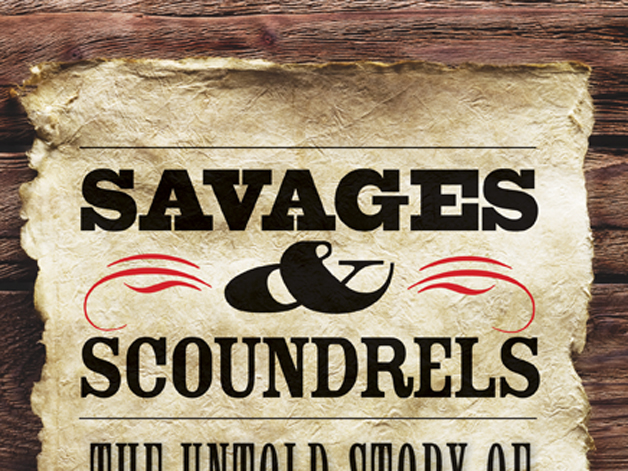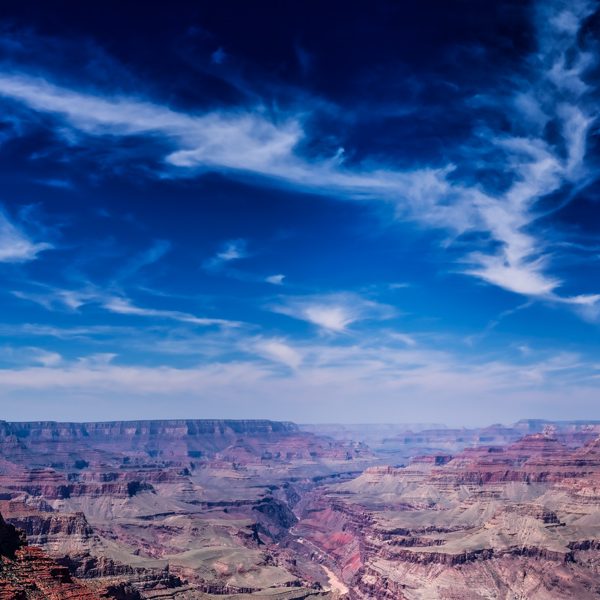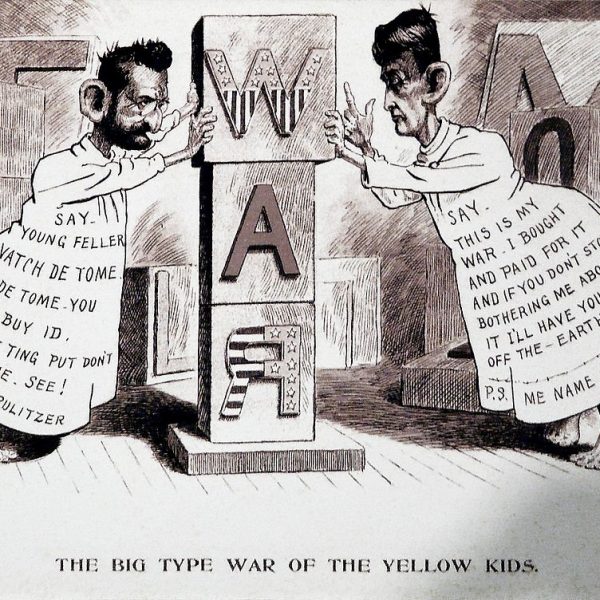Things Our Fathers Never Taught Us: Paul VanDevelder on American History

Paul VanDevelder, photo credit: Gabrielle VanDevelder
Journalist Paul VanDevelder, author of Savages and Scoundrels: The Untold Story of America’s Road to Empire through Indian Territory, considers the development of American history from the perspectives of the Founders and what a narrow consideration of the nation’s expansion might mean for how we as Americans—indeed, all types—reflect on the events that have shaped our present understanding of who and what we are in the world.
Paul VanDevelder—
Not long ago I was being interviewed by a reporter for a story about my two books, Coyote Warrior: One Man, Three Tribes, and the Trial that Forged a Nation, and Savages and Scoundrels: The Untold Story of America’s Road to Empire through Indian Territory, and she asked me, “Since these two books work so well together, what is the lesson you have learned from writing them?”
I thought about it a moment, then waved a little white flag. “Can I think about that and write you back?”
“Certainly.”
For those not familiar with these two books, Coyote Warrior was written from the vantage point of an Indian village beside a river, the Missouri River, to be precise, and it told a version of America’s story through the eyes of five generations of the Mandan/Hidatsa family that welcomed Lewis and Clark to the Knife River Villages in October, 1804. To write Savages and Scoundrels, I crossed that river and wrote it from the vantage point of the ‘shining city on the hill,’ looking back at the river across time and space. After pondering her question for awhile, I wrote back the following:
 “Two hundred years after our founding, the struggle for dignity and justice in this grand experiment we call the United States of America is an ongoing ordeal for many citizens. The reasons for that struggle are embedded in ideological conflicts that were present at the founding and continue to be with us today. As George Washington and Benjamin Franklin feared, the new republic was shaped in a crucible of irreconcilable moral and political conflicts. We could not, on the one hand, hold out the promise of life, liberty, and the pursuit of happiness to citizens without actively denying life, liberty, and the pursuit of happiness to anyone who stood in the way of our desires. We’re still trapped in that paradox.
“Two hundred years after our founding, the struggle for dignity and justice in this grand experiment we call the United States of America is an ongoing ordeal for many citizens. The reasons for that struggle are embedded in ideological conflicts that were present at the founding and continue to be with us today. As George Washington and Benjamin Franklin feared, the new republic was shaped in a crucible of irreconcilable moral and political conflicts. We could not, on the one hand, hold out the promise of life, liberty, and the pursuit of happiness to citizens without actively denying life, liberty, and the pursuit of happiness to anyone who stood in the way of our desires. We’re still trapped in that paradox.
Washington, Franklin, and others, like John Adams, were correct in their predictions. Jefferson, by contrast, an aristocrat to pretended to champion the liberty of the ‘common man’ (and probably did more to circumscribe that liberty than any other president since), was not. In the 19th century, the conflicts embedded in our founding played out in a disgraceful drama. By mid-19th century the overwhelming passion that gripped society’s imagination was reaching the Pacific Ocean and laying claim to the continent, but we had a very big problem. The Indian owned all of the land between the Mississippi River and the Pacific Ocean. And even though our most sacred and foundational laws solemnized that ownership, when push came to shove, we were more than willing to unhinge the very thing we said we were — a nation of laws — in order to satisfy our appetites and to fulfill our Manifest Destiny. In 1850, Manifest Destiny was nothing if not a self-proclaimed divine mission to take dominion over the earth and to vanquish heathens and infidels who stood in the way of the white man’s progress. A century later, that engine of social engineering is still with us in the form of Neo-Conservatism.
So, a lesson from the two books? There are many different paths through the American story, through the meta-narrative that is this nation, and what you perceive that meta-narrative to be will in large part be shaped by a vantage point of geography and of your political and economic position within the hierarchy of our society. I often think of writing narrative as a trip down a river, and the readers are passengers in the rafts that I have built. Most are seeing the country unfold before them for the first time, and the experience can be exhilarating, confounding, and challenging. So there’s the answer: The narratives in these books flow together to form a river through the American experience that is unlike any of the routes that have become so familiar, and so mythologized, in the telling and retelling. It is the experience not of the victor, nor of the defeated, but of the unvanquished who have inhabited this land for thousands of years. As they remind us, our self-congratulatory talk about freedom and democracy and the inviolable rights of the individual, rings a little hollow under close scrutiny. We have acted in monstrous ways that – sadly – confirmed Washington’s darkest fears.
If justice and dignity are ever to become the ruling values in a pluralistic society of diverse cultures, religions, and views, then perhaps we have entered into a revolutionary age that will see the dominance of the European replaced by a more polymorphic society. Our recent election tends to support that premise. Like it our not, our history is a cascade of ironies and unintended consequences. The biggest irony of all might be that those who were denied life, liberty, and the pursuit of happiness — those who persevered and endured the struggles of the last two hundred years — might finally secure for all citizens the liberties reserved by the founders for the select few.
Paul VanDevelder is a journalist and author. His book Coyote Warrior: One Man, Three Tribes, and the Trial That Forged a Nation was nominated for the Pulitzer Prize, the National Book Award, and the American Bar Association’s Silver Gavel Award. He lives in the Pacific Northwest. You can visit the Savages & Scoundrels website to find more information and resources on the untold stories of American history.

























